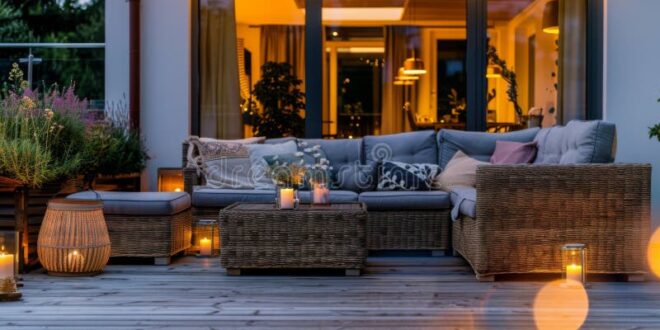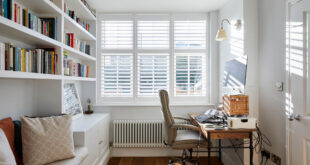Extending the Living Room Outdoors: The Magic of Lighting
Imagine this: You’re nestled in your living room, the soft glow of a table lamp casting gentle shadows. But tonight, the French doors are wide open, and the living room seems to stretch beyond its usual confines, seamlessly blending with the patio. The secret? Artfully placed outdoor lighting that creates an irresistible ambiance, blurring the lines between indoors and out. This isn’t just about illumination; it’s about crafting an experience, a mood, a feeling of spaciousness and tranquility. It’s about transforming your outdoor area into an extension of your living room, a haven for relaxation and connection.
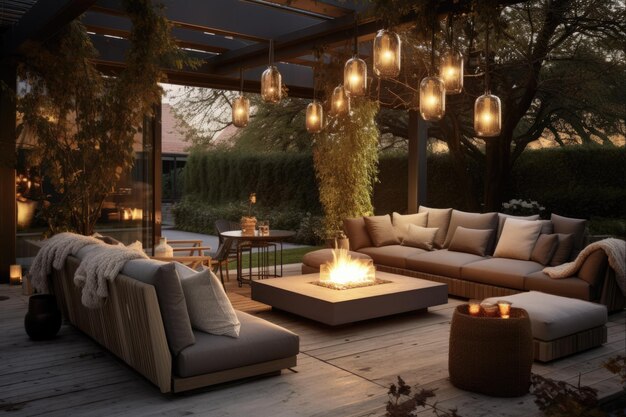
Outdoor lighting for your living room extension isn’t just about practicality; it’s about creating a mood, a feeling, an atmosphere that invites you to linger longer, to connect with loved ones, and to truly enjoy the beauty of your surroundings. It’s an investment in your well-being, in your home’s aesthetic appeal, and in the overall enjoyment of your living space.
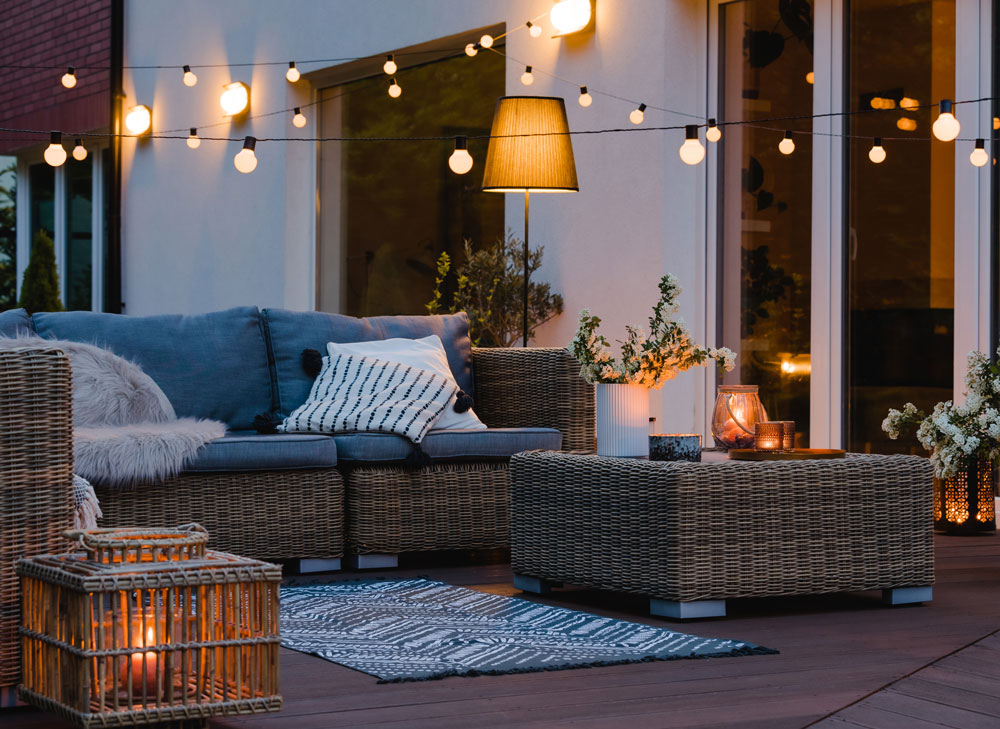
Why Outdoor Lighting Matters for Your Living Room’s Outdoor Space
Beyond the aesthetic appeal, well-planned outdoor lighting provides several practical benefits:
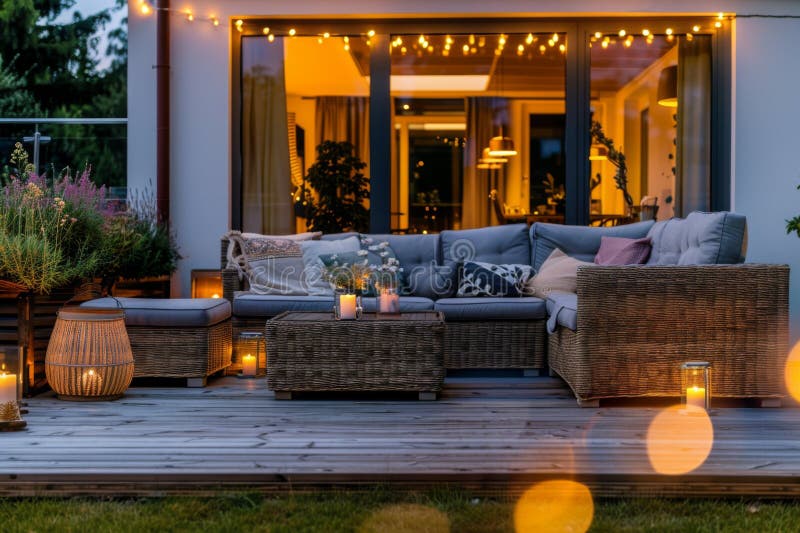
- Enhanced Safety and Security: A well-lit patio deters potential intruders and reduces the risk of accidents, such as trips and falls.
- Extended Usability: Outdoor lighting allows you to enjoy your patio or deck long after the sun has set, maximizing the use of your outdoor living space.
- Increased Property Value: Strategically placed lighting can enhance your home’s curb appeal and potentially increase its market value.
- Improved Ambiance: As we’ve touched on, lighting creates a warm and inviting atmosphere, perfect for entertaining or simply relaxing.
- Seamless Indoor-Outdoor Transition: The right lighting can visually connect your indoor and outdoor spaces, making your living room feel larger and more open.
Planning Your Outdoor Lighting Scheme: A Step-by-Step Guide
Creating the perfect outdoor lighting ambiance requires careful planning. Here’s a step-by-step guide to help you get started:
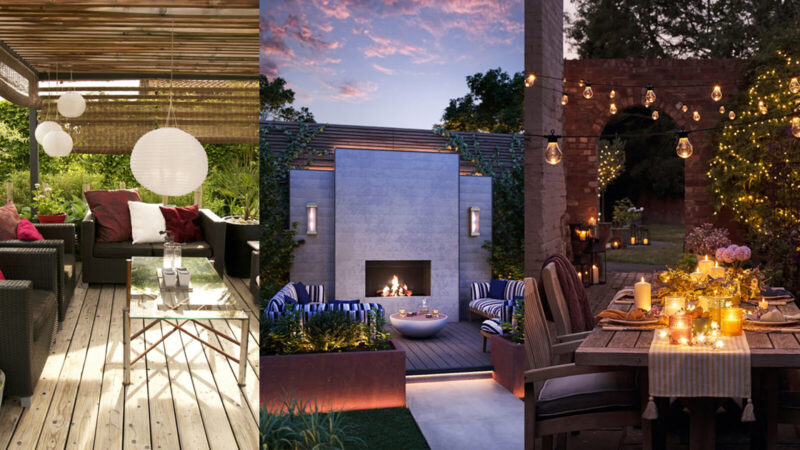
1. Assess Your Space and Needs
Begin by evaluating your outdoor space. Consider its size, layout, and existing features. What are you hoping to achieve with your lighting? Do you want to create a romantic dining area, a cozy reading nook, or a vibrant entertainment space? Think about the specific activities you’ll be engaging in outdoors and the amount of light required for each.
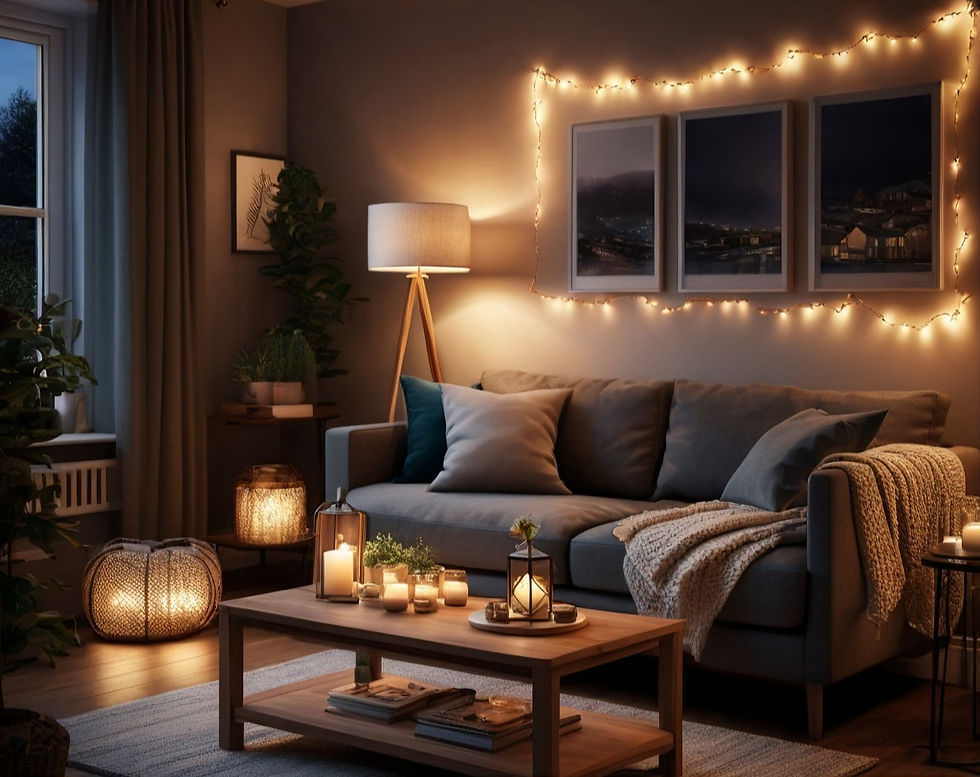
2. Define Your Style and Mood
What kind of atmosphere are you trying to create? Do you prefer a modern, minimalist look or a more rustic, bohemian vibe? Consider the architectural style of your home and choose lighting fixtures that complement it. Think about the colors and materials used in your outdoor furniture and landscaping. Do you want to create a warm and inviting space, a dramatic and sophisticated setting, or a playful and whimsical atmosphere?
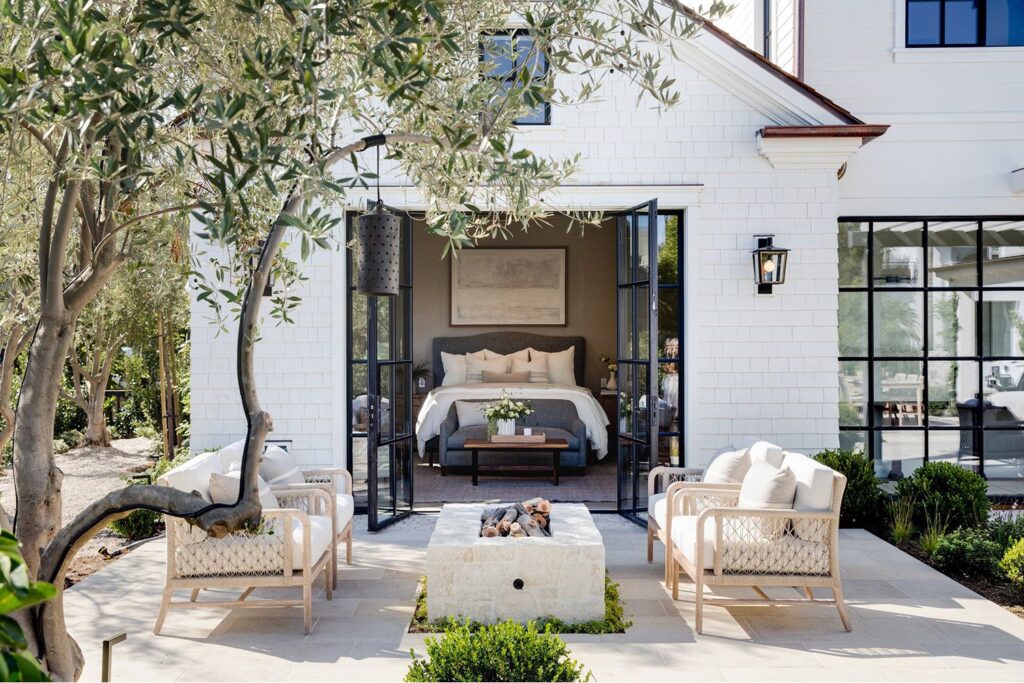
3. Choose the Right Types of Lighting
There are various types of outdoor lighting to choose from, each serving a different purpose:
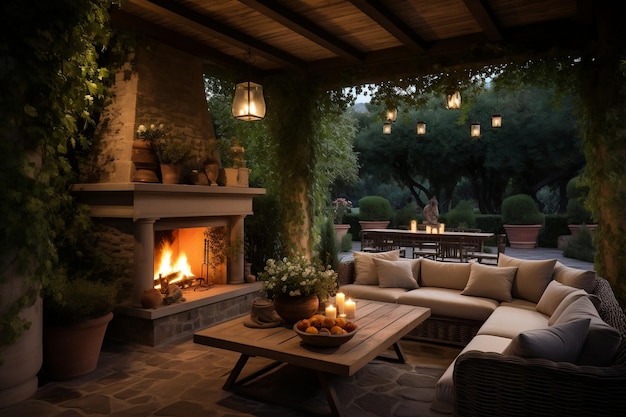
- Ambient Lighting: Provides overall illumination and sets the mood. Examples include string lights, lanterns, and patio lights. This is your base layer, the foundation upon which you’ll build your ambiance. Think of it as the soft background music that sets the tone for the entire space.
- Task Lighting: Focuses light on specific areas for tasks such as grilling, reading, or dining. Examples include spotlights, deck lights, and under-cabinet lighting. If you have an outdoor kitchen or dining area, task lighting is essential for safety and functionality.
- Accent Lighting: Highlights architectural features, landscaping, or decorative elements. Examples include spotlights, floodlights, and well lights. This is where you can really get creative and showcase the beauty of your outdoor space. Use accent lighting to draw attention to your favorite plants, sculptures, or architectural details.
4. Consider Different Lighting Technologies
The technology behind outdoor lighting has advanced significantly in recent years. Here’s a rundown of common options:
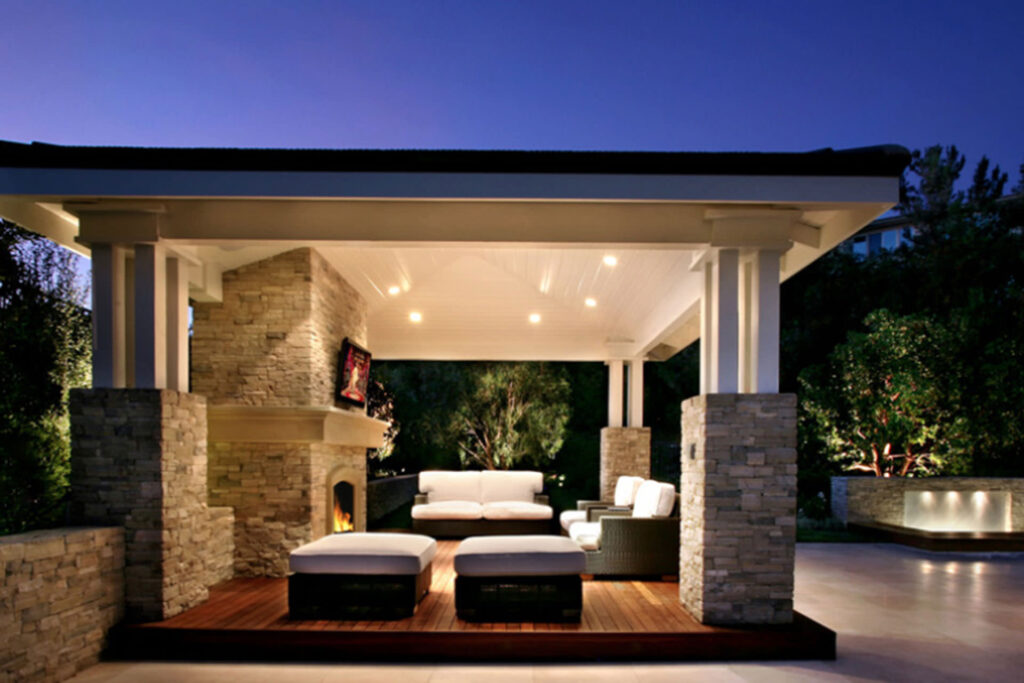
- LED Lighting: Energy-efficient, long-lasting, and available in a wide range of colors and styles. LEDs are the clear winner in terms of energy efficiency and longevity. They also offer a wider range of color temperatures, allowing you to create the perfect mood.
- Solar Lighting: Environmentally friendly and easy to install, but may not be as bright as other options. Solar lights are a great option for accent lighting or for areas where running electrical wires is difficult. However, keep in mind that their brightness and reliability can vary depending on the amount of sunlight they receive.
- Low-Voltage Lighting: Safer and easier to install than traditional high-voltage lighting, requiring a transformer. Low-voltage lighting is a good compromise between cost and performance. It’s relatively easy to install and offers good brightness and reliability.
5. Create Layers of Light
The key to creating a truly captivating outdoor lighting ambiance is to layer different types of lighting. Combine ambient, task, and accent lighting to create depth, dimension, and visual interest. Avoid relying solely on one type of lighting, as this can result in a flat and uninviting atmosphere.
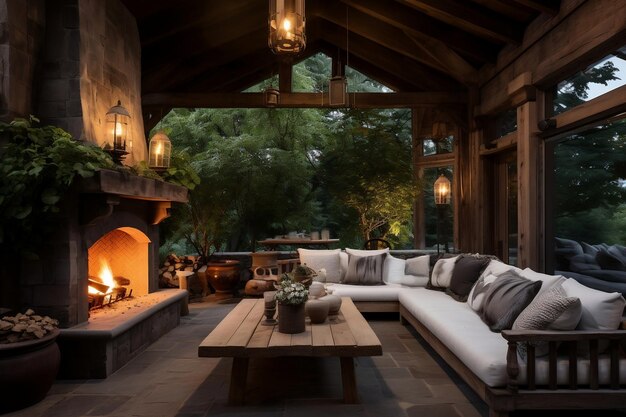
6. Focus on Color Temperature
Color temperature refers to the warmth or coolness of the light emitted by a bulb. Warm white light (2700-3000K) creates a cozy and inviting atmosphere, while cool white light (4000-5000K) is more modern and energizing. Choose a color temperature that complements your style and mood. For a relaxing outdoor living room extension, warm white light is generally preferred.
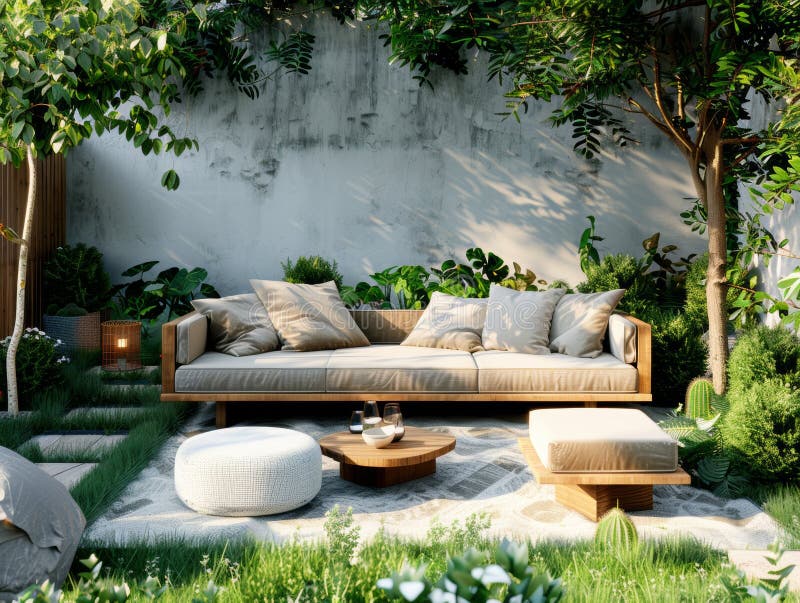
7. Think About Control and Automation
Consider installing a lighting control system that allows you to adjust the brightness and color temperature of your lights. This will give you maximum flexibility and allow you to create the perfect ambiance for any occasion. Smart lighting systems can also be programmed to turn on and off automatically, saving you energy and enhancing security. Dimmers are your best friend. They allow you to fine-tune the lighting to create the perfect mood, whether you’re hosting a lively party or enjoying a quiet evening alone.
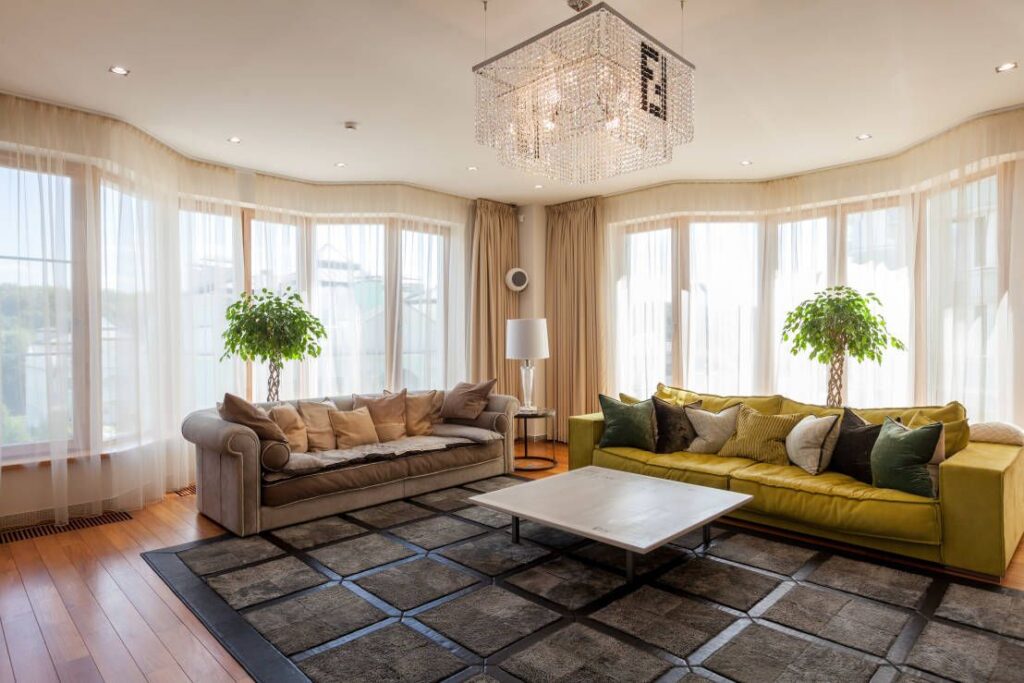
8. Don’t Forget the Details
Pay attention to the small details that can make a big difference. For example, use decorative light bulbs to add a touch of personality to your lighting fixtures. Consider adding lanterns or candles to create a warm and inviting glow. Use uplighting to highlight trees or shrubs in your landscaping. The little things often have the biggest impact. Think about adding touches of whimsy, such as fairy lights wrapped around tree branches or a string of colorful lanterns. These small details can add a lot of personality to your outdoor space.
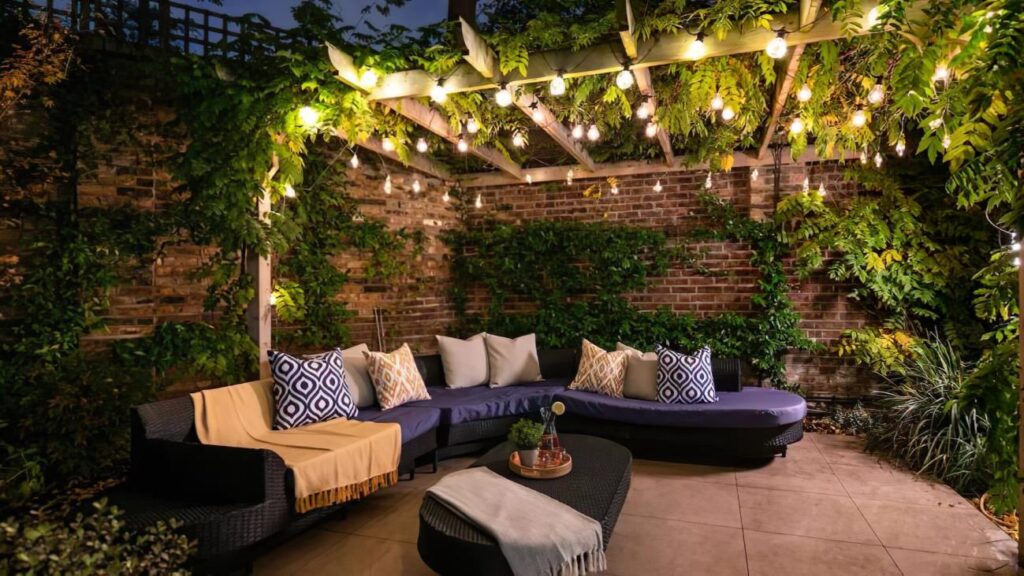
9. Safety First
Always prioritize safety when installing outdoor lighting. Use weatherproof fixtures and wiring. Follow all local electrical codes. If you’re not comfortable working with electricity, hire a qualified electrician. Ensure all wiring is properly grounded and protected from the elements. Regularly inspect your lighting fixtures for damage or wear and tear.
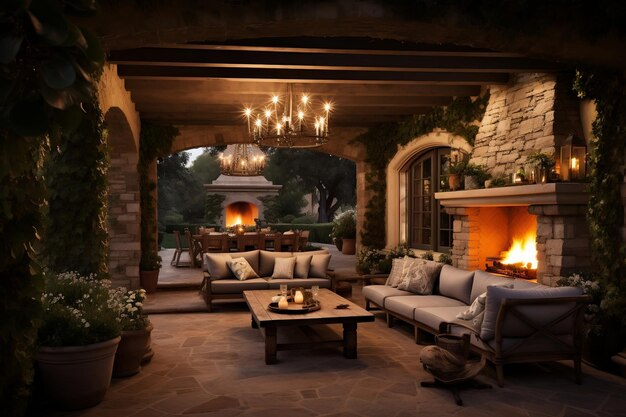
Specific Lighting Ideas for Your Outdoor Living Room Extension
Now that you have a general understanding of outdoor lighting principles, let’s explore some specific ideas for your outdoor living room extension:
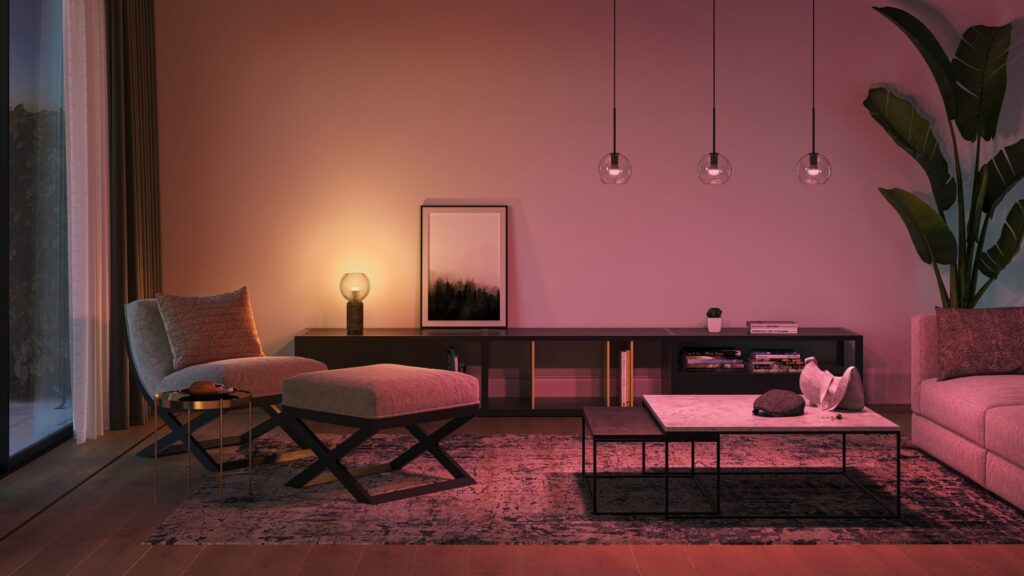
Ambient Lighting Ideas
- String Lights: Hang string lights across your patio or deck to create a festive and inviting atmosphere. Choose from a variety of styles, including bistro lights, fairy lights, and globe lights. String lights are incredibly versatile and can be draped along fences, strung between trees, or even hung from the eaves of your house.
- Lanterns: Place lanterns on tables, shelves, or pathways to add a touch of warmth and elegance. Choose from a variety of styles, including traditional lanterns, modern lanterns, and Moroccan lanterns. Lanterns can be used to create focal points or to simply add a soft glow to your outdoor space.
- Patio Lights: Install patio lights under your eaves or along your fence to provide general illumination. Choose from a variety of styles, including recessed lights, sconces, and spotlights. Patio lights are a great way to provide consistent and even lighting throughout your outdoor space.
- Moonlighting: Position lights high up in trees to mimic the soft, natural light of the moon. This creates a beautiful and ethereal ambiance. This technique requires careful placement of lights to avoid harsh shadows or glare.
Task Lighting Ideas
- Spotlights: Use spotlights to illuminate specific areas, such as a grill or a dining table. Choose spotlights with adjustable heads so you can direct the light where you need it most. Spotlights are essential for safety and functionality in areas where you’ll be performing tasks after dark.
- Deck Lights: Install deck lights along the edges of your deck to provide safety and visibility. Choose from a variety of styles, including recessed lights, post lights, and step lights. Deck lights not only enhance safety but also add a touch of elegance to your outdoor space.
- Under-Cabinet Lighting: Install under-cabinet lighting under your outdoor kitchen cabinets to provide task lighting for food preparation. This will make it easier to see what you’re doing and reduce the risk of accidents.
Accent Lighting Ideas
- Uplighting: Use uplighting to highlight trees, shrubs, or architectural features. This will add depth and dimension to your outdoor space and create a dramatic effect. Uplighting can be used to draw attention to your favorite plants or to create a sense of grandeur.
- Floodlights: Use floodlights to illuminate large areas, such as a garden or a patio. Floodlights are a great way to deter intruders and provide security. However, be careful not to use floodlights too liberally, as they can create harsh shadows and glare.
- Well Lights: Install well lights in the ground to highlight specific plants or features. Well lights are discreet and unobtrusive, and they provide a soft and subtle glow.
- Path Lighting: Illuminate walkways and pathways with path lights to ensure safety and visibility. Choose from a variety of styles, including bollard lights, mushroom lights, and pagoda lights. Path lighting is essential for creating a safe and welcoming environment for guests.
Choosing the Right Fixtures: Style and Functionality
The style of your outdoor lighting fixtures should complement the overall aesthetic of your home and outdoor space. Consider the materials, colors, and shapes of your fixtures. Do you prefer a modern, minimalist look or a more traditional, ornate style? Are you looking for fixtures that blend seamlessly into the landscape or that make a bold statement? Functionality is also important. Choose fixtures that are durable, weather-resistant, and easy to maintain.
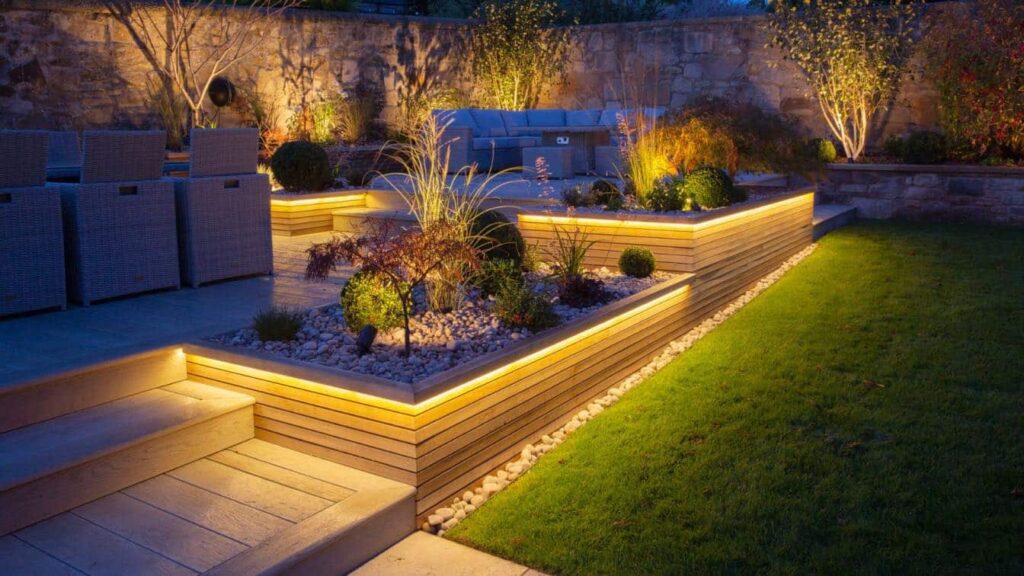
Budgeting for Outdoor Lighting
The cost of outdoor lighting can vary widely depending on the types of fixtures you choose, the size of your space, and whether you hire a professional installer. Set a budget before you start shopping and stick to it. Consider prioritizing your lighting needs and focusing on the areas that are most important to you. You can always add more lighting later as your budget allows.
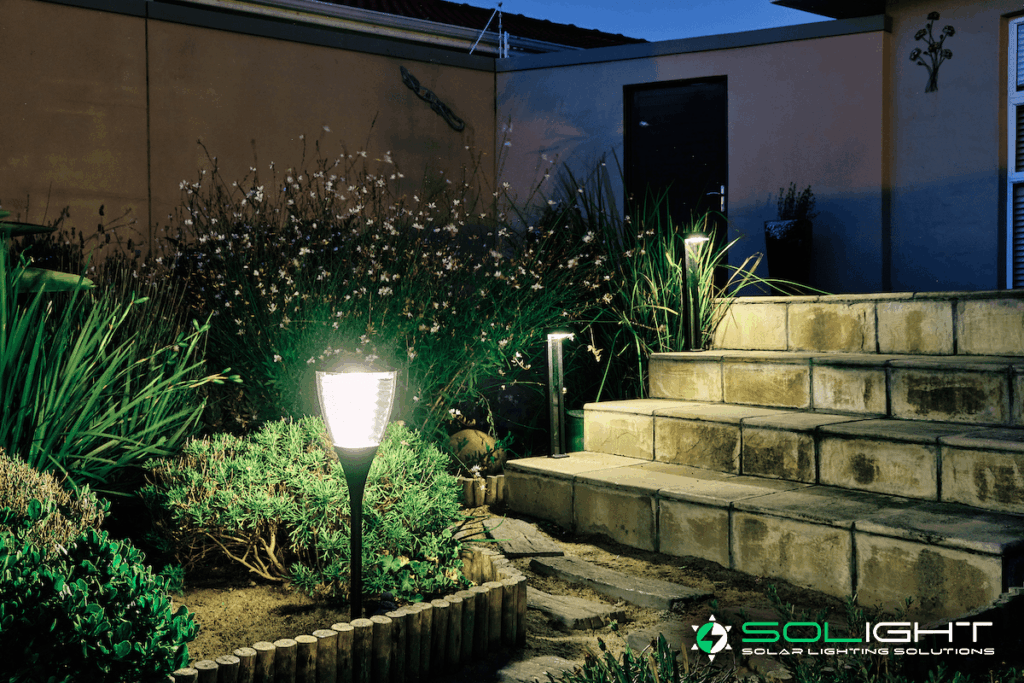
DIY vs. Professional Installation
Some outdoor lighting projects can be done DIY, while others are best left to the professionals. Simple projects, such as installing string lights or replacing light bulbs, can usually be handled by homeowners. However, more complex projects, such as running electrical wiring or installing underground lighting, should be done by a qualified electrician. If you’re not comfortable working with electricity, it’s always best to hire a professional.
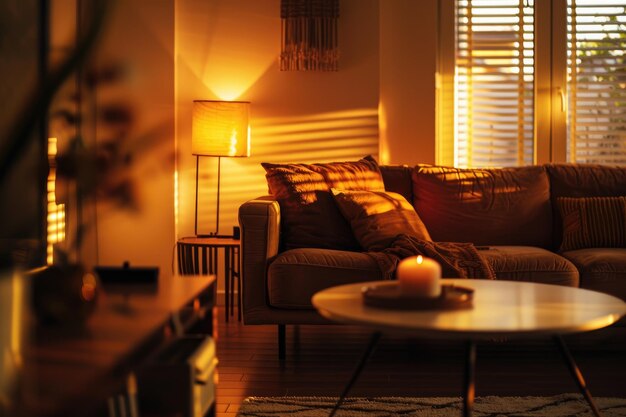
Maintaining Your Outdoor Lighting
Regular maintenance is essential for keeping your outdoor lighting looking its best. Clean your fixtures regularly to remove dirt and debris. Replace burned-out light bulbs promptly. Inspect your wiring for damage or wear and tear. Trim any landscaping that is obstructing your lights. Proper maintenance will extend the life of your lighting fixtures and ensure that they continue to provide beautiful and functional illumination for years to come.
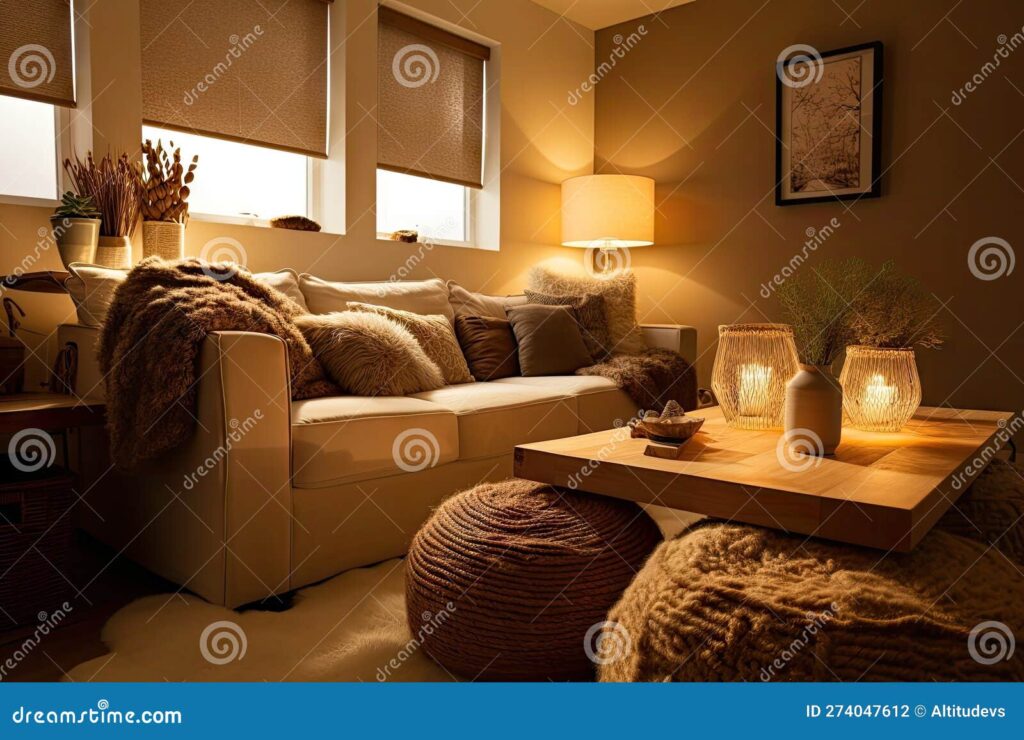
The Psychological Impact of Outdoor Lighting
Beyond aesthetics and practicality, outdoor lighting has a profound psychological impact. Warm, inviting lighting can reduce stress and anxiety, promote relaxation, and create a sense of security. Bright, well-lit spaces can boost mood and energy levels. By carefully considering the psychological effects of your lighting choices, you can create an outdoor space that is not only beautiful but also beneficial to your well-being. Imagine sinking into a comfortable chair on your patio, surrounded by the soft glow of lanterns and the gentle rustling of leaves. The stress of the day melts away as you soak in the tranquility of your outdoor oasis.
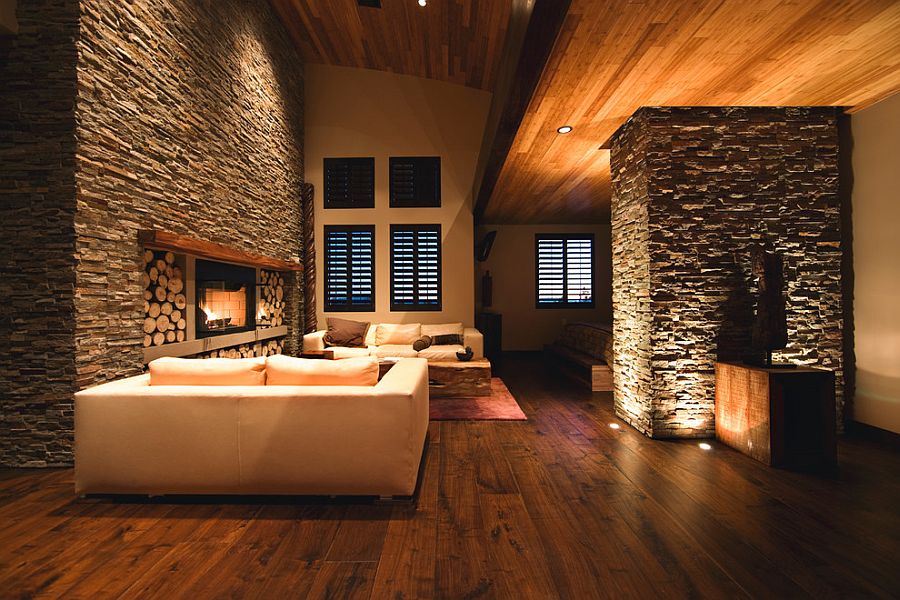
Sustainable Outdoor Lighting Practices
As we become increasingly aware of our environmental impact, it’s important to consider sustainable outdoor lighting practices. Choose energy-efficient LED lighting. Use solar-powered lights whenever possible. Install timers and motion sensors to reduce energy consumption. Avoid light pollution by directing light downwards and minimizing glare. By adopting sustainable lighting practices, you can reduce your carbon footprint and create a more environmentally friendly outdoor space.
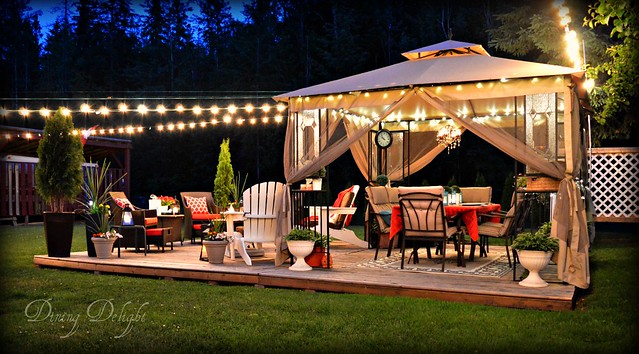
Beyond the Basics: Creative Outdoor Lighting Ideas
Once you’ve mastered the basics of outdoor lighting, you can start experimenting with more creative ideas. Consider adding colored lights to create a festive atmosphere. Use projections to create dramatic patterns on walls or fences. Install a water feature with integrated lighting. The possibilities are endless!
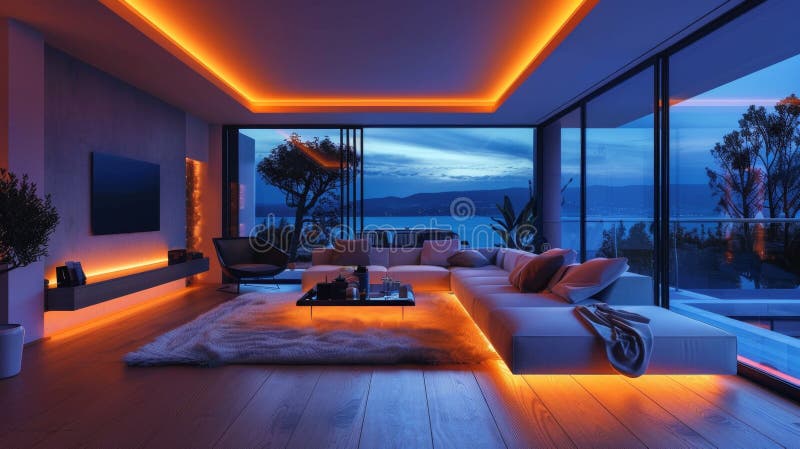
Transforming Your Outdoor Space: A Case Study
Let’s consider a real-world example of how outdoor lighting can transform a living room extension. Imagine a family with a small, underutilized patio. By adding string lights, lanterns, and uplighting, they transformed their patio into a cozy and inviting outdoor living room. They added a comfortable seating area, a fire pit, and a small outdoor kitchen. Now, they spend countless hours outdoors, enjoying meals, relaxing with friends, and making memories.
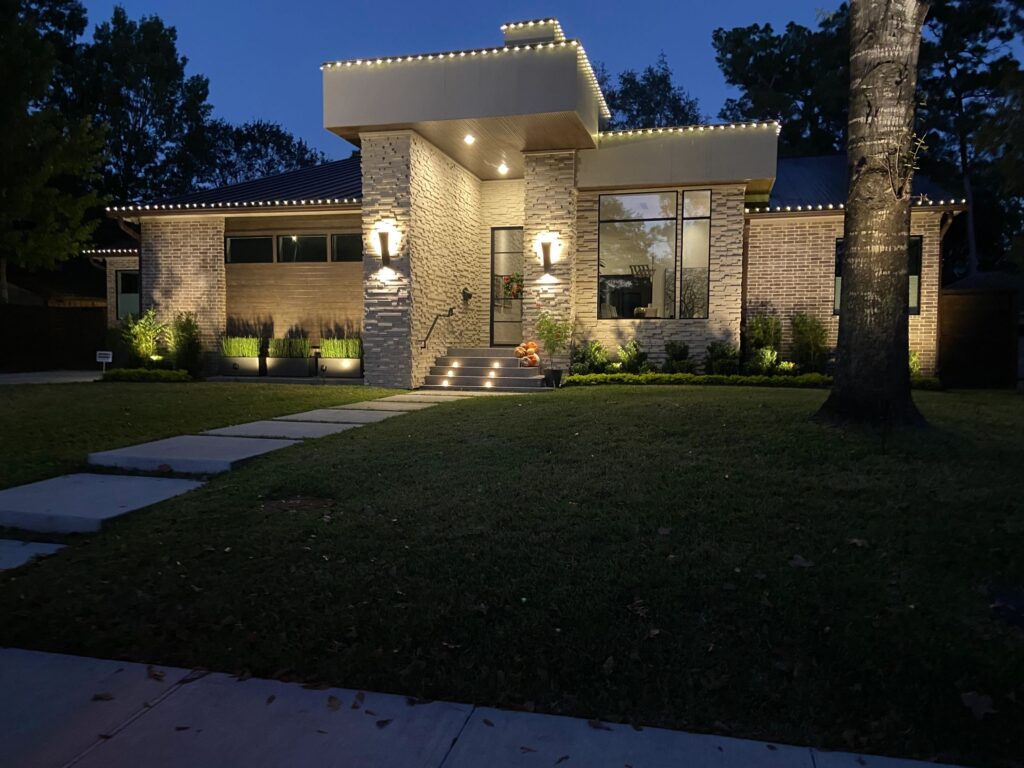
The Future of Outdoor Lighting
The future of outdoor lighting is bright! As technology continues to advance, we can expect to see even more innovative and energy-efficient lighting solutions. Smart lighting systems will become even more sophisticated, allowing us to control our lighting with our smartphones or voice assistants. We’ll also see more emphasis on sustainable lighting practices and minimizing light pollution. The possibilities are endless, and the future of outdoor lighting is sure to be exciting.
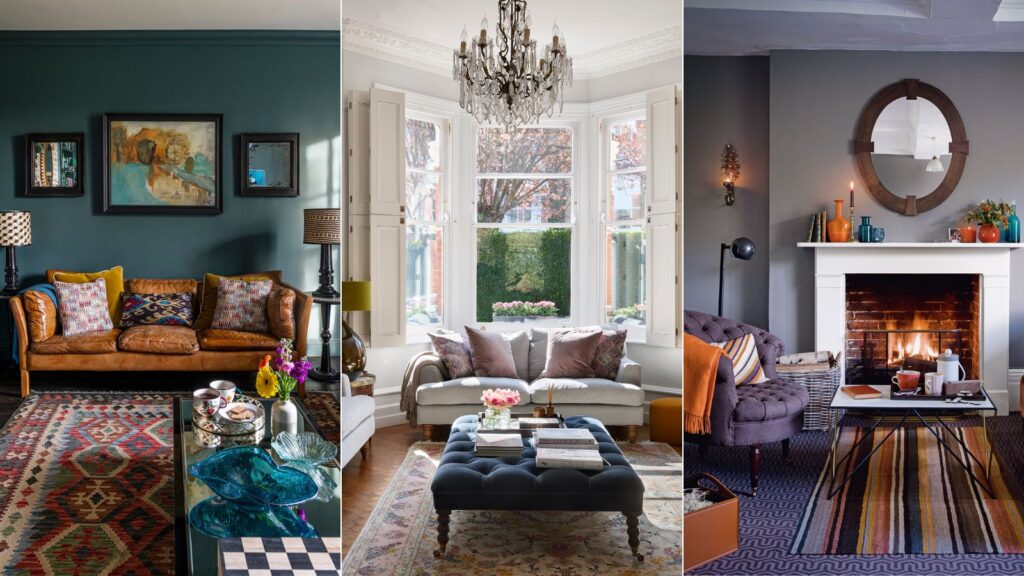
Conclusion: Creating Your Dream Outdoor Living Room Ambiance
Creating the perfect outdoor lighting ambiance for your living room extension is an investment in your home, your lifestyle, and your well-being. By following the tips and ideas outlined in this guide, you can transform your outdoor space into a beautiful, functional, and inviting oasis that you’ll enjoy for years to come. So, start planning your outdoor lighting project today and get ready to illuminate your evenings!
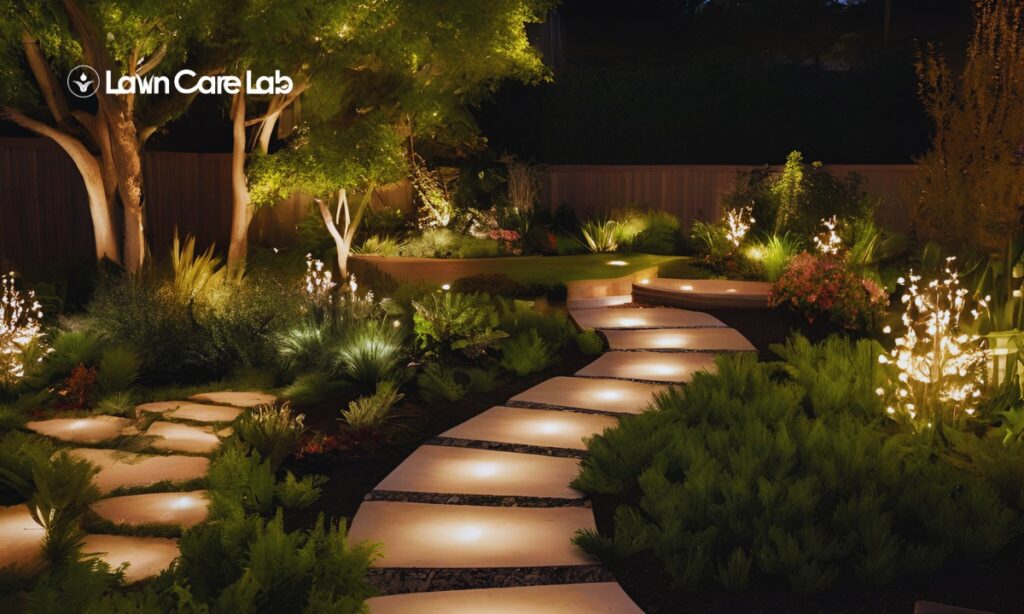
 Nimila
Nimila
